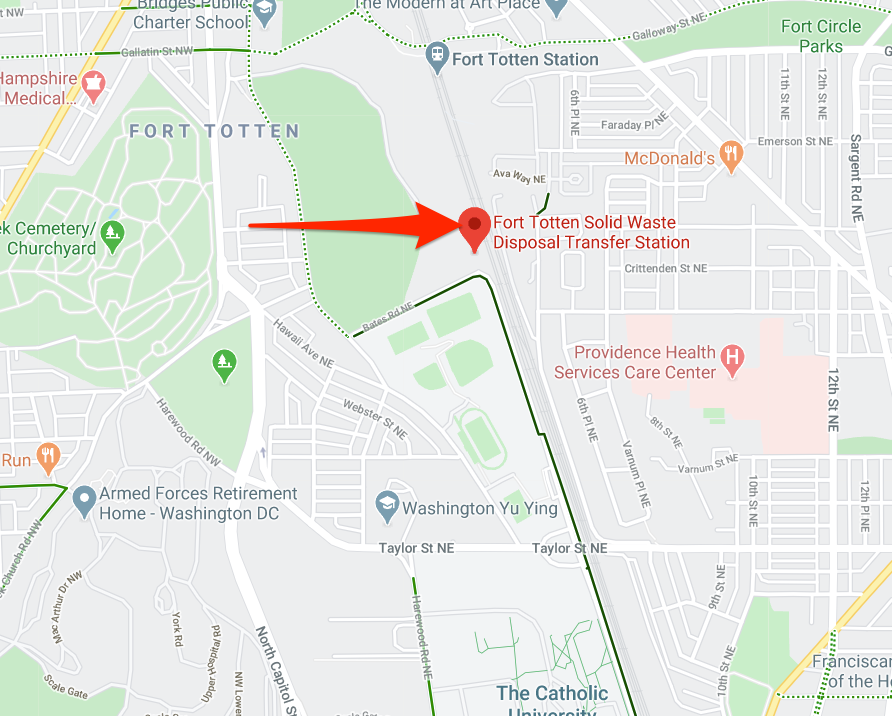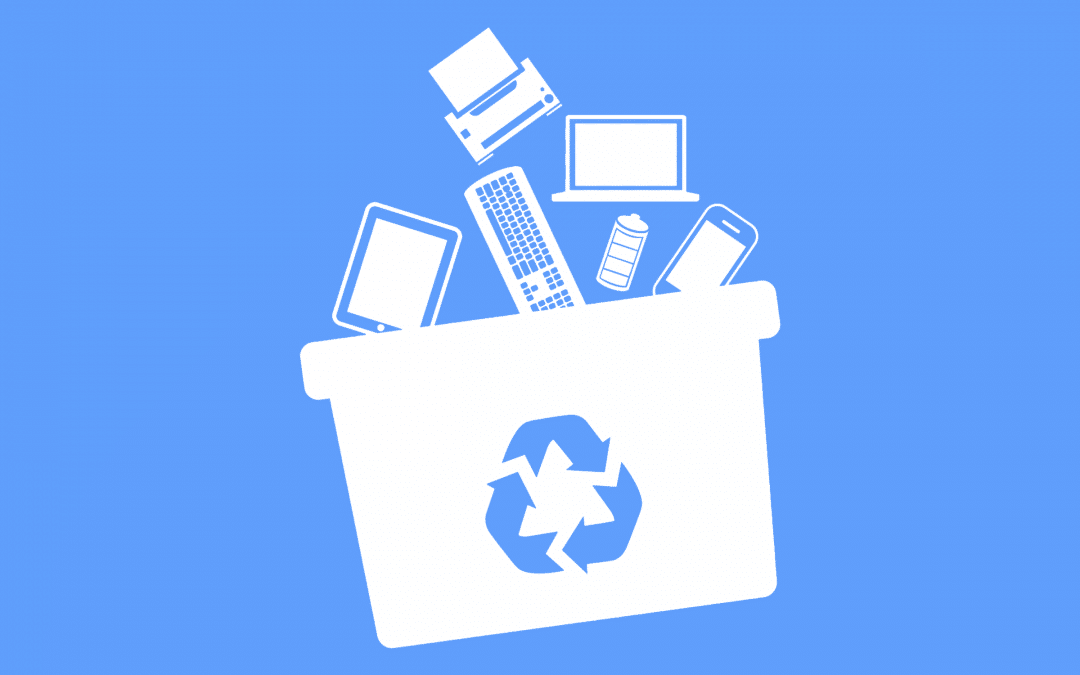DC is a national leader in the proper recycling of e-waste. DC enacted the Sustainable Solid Waste Management Amendment Act in 2014 that created the eCYCLE DC program with the goal to divert 80% of e-waste away from landfills by 2032.
You can recycle your electronic waste every Saturday from 8am to 3pm or the Thursday that proceeds the first Saturday of the month from 1-5pm at the Fort Totten Transfer Station located at 4900 John F. McCormack Drive, NE. Can’t lug your e-junk up there? You can often return the item to the retailer or mail them back to the manufacturer.

If you are a property manager or association board member, we encourage you to post the list below in your trash chute room. Even better, consider a twice a year drive to collect e-waste and have a volunteer or staff member drop them off at the Fort Totten site.
- Audio/visual equipment including audio cassettes, TVs, VCRs
- Batteries
- Camcorders
- Carbon monoxide and smoke detectors
- CD Rom drives CDs/DVDs including floppy drives/hard drives
- Cell phones
- Computers and monitors
- Connectors / cords / wires
- Copy and fax machines, printers
- Memory chips
- Pagers
- Paints, latex
- Power supplies
- Video games and software
Why not just throw away electronics?
On average, each American household has around two dozen pieces of electronic equipment and each year 7 million tons of those gizmos become e-waste. E-waste accounts for 2% of the total trash in landfills but accounts for nearly 2/3rds of toxic waste and is growing faster than any other type of toxic waste.
Electronic waste contains toxic materials like lead, lithium, cadmium, mercury, and several polybrominated flame retardants. When e-waste gets exposed to heat or is incinerated, poisonous fumes are released that then leach into the water supply and enter the food chain. The health effects of e-waste are especially deleterious for children and can include thyroid dysfunction, developmental delay, and birth defects.
While the best way to avoid e-waste is to limit purchase of electronic equipment, our tech based economy makes it difficult to do so and remain competitive. Thus, to conserve natural resources it is vital to properly recycle these electronic items. Recycling ensures appropriate handling of all toxic materials, protects the environment and human health and provides a sustainable source of precious metals.

